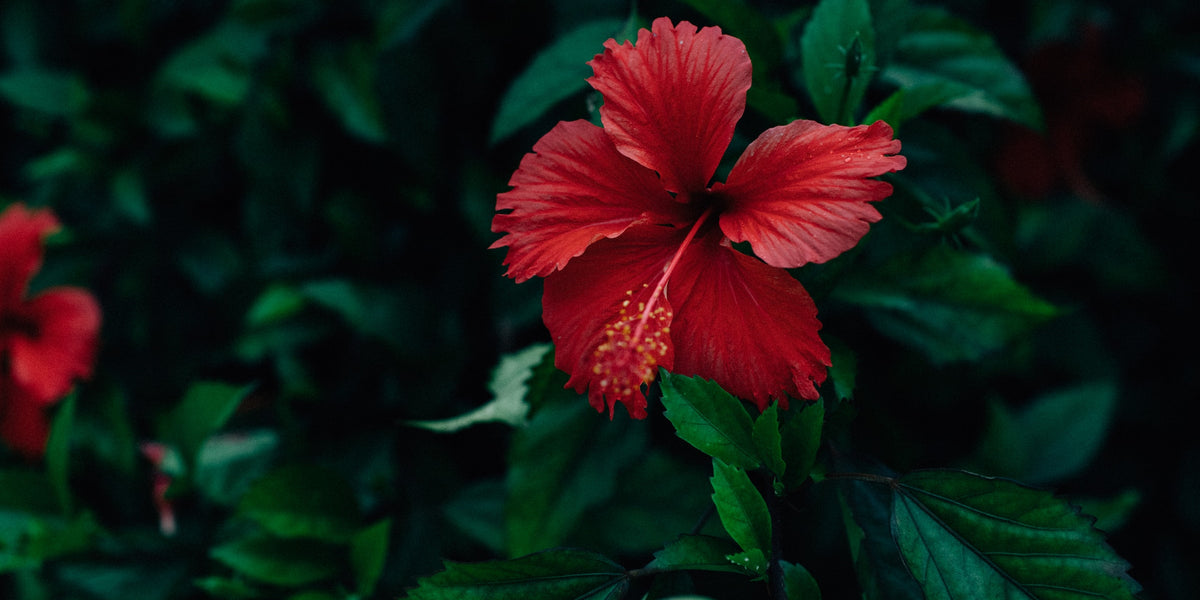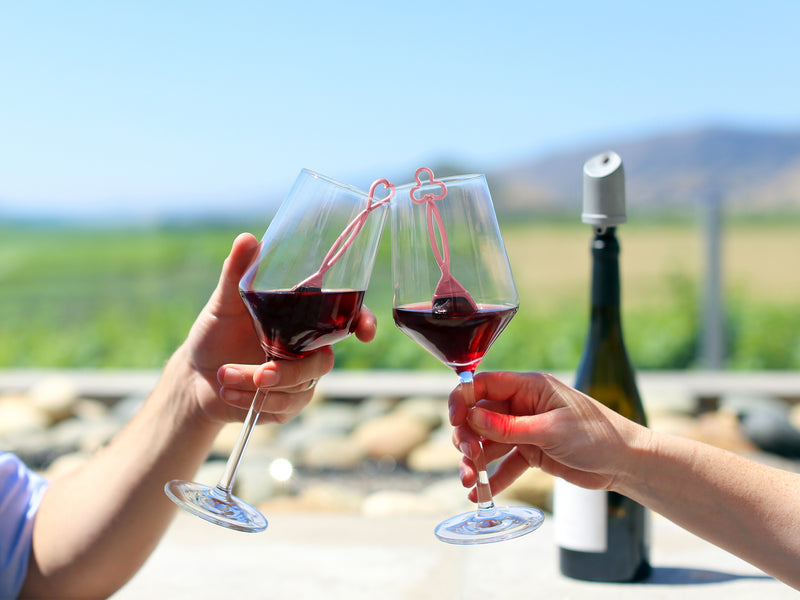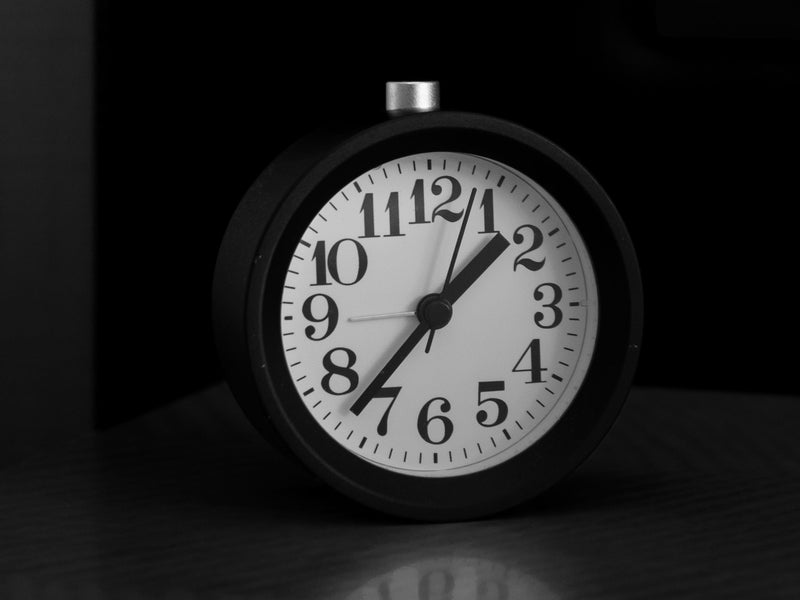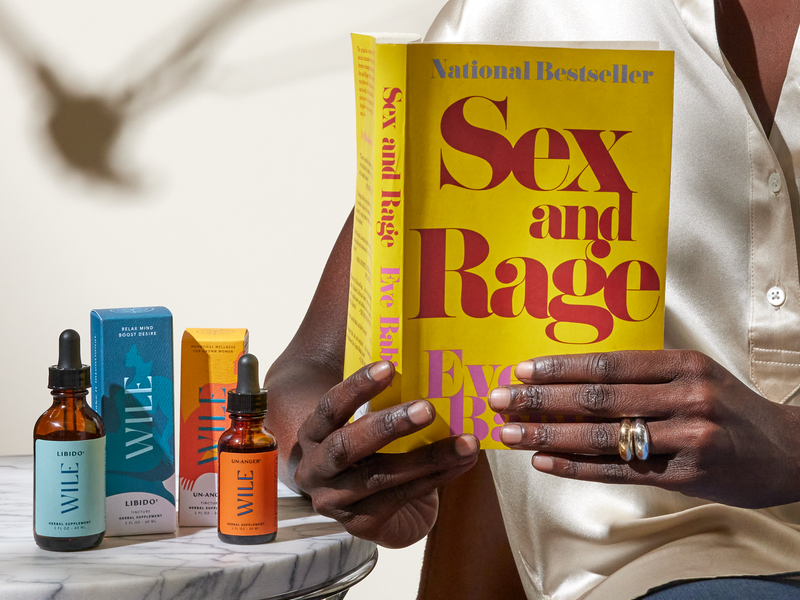Meet Hibiscus, Your New Favorite Nightcap
Wine to unwind. It’s kind of become the female American way. But grabbing a red before bed can trigger hot flashes and sleepless nights, which may already be a problem.
Good news: Hibiscus is a delicious, ruby-colored mood supplement that promotes relaxation and sleep, making it a perfect bedtime beverage and a key ingredient in our Calm & Collected stress-relief drink mix.
Why We Love Hibiscus
- Hibiscus contains phytoestrogens, which are plant-based compounds that mimic estrogen and help with hormone balance in women over 40. We’ll take all the hormonal help we can get!
- No shade to our favorite fungi, but not every ingredient is exactly tasty. Hibiscus, however, is absolutely delicious. It is tart and a little bit sweet, and some people compare its flavor to cranberry. You may have already tried it at a Mexican restaurant, where it would be called agua de jamaica.
- Hibiscus is a gorgeous garden plant, and you can grow your own! The edible varieties are Hibiscus sabdariffa and Hibiscus acetosella.
Key Benefits:
Women’s Stress Relief - Hibiscus is an important ingredient in many women’s stress supplements because it’s full of natural compounds that relax the nervous system and help promote serotonin and dopamine production. Together, these create a feeling of tranquil well-being.
Hibiscus also contains flavonoids, the compound responsible for wine’s calming properties.
Sleep Soundly -Hibiscus contains melatonin, a compound that promotes restful sleep and signals to your brain that it’s time to wind down. Clinical studies have found that hibiscus can decrease sleep disturbances and wakefulness, which are the most frequent sleep challenges after 40. It is also shown to increase REM sleep time, which is crucial for restoring your brain and body to full capacity. Many people report feeling a wave of calm rolling over them only a few minutes after enjoying hibiscus tea or sleep supplement.
Promotes Heart Health - Recent studies are connecting hibiscus with improvements in cholesterol and blood pressure that contribute to heart health. This matters because heart disease is the #1 killer of American women and can be exacerbated by shifting perimenopause hormones.
Traditional Uses:
Hibiscus has both medicinal and culinary use stemming back to at least the time of the Egyptian Empire. Ancient Egyptians enjoyed hibiscus as a refreshing beverage and used it to:
- Reduce fever
- Boost cardiovascular health
- Ease constipation
- Heal colds
Practitioners of Traditional Chinese Medicine use hibiscus for:
- Liver health
- High blood pressure
Ayurvedic physicians use hibiscus to support:
- Gynecological health
- The circulatory system and heart
- A clear complexion.
Hibiscus has also been used in Malaysia for sexually transmitted infections and as a fever reducer.
About the Plant:
Hibiscus is a flowering shrub with yellow, pink or magenta blossoms and big green leaves that split into lobes as the plant matures. The flower petals and calyx are medicinal and used in cooking.
Hibiscus is native to the area that is now Western Sudan, but it spread across the tropics long ago and can be found growing across parts of Asia, Africa, Oceania, the Caribbean and the Americas.
The name hibiscus comes from “ibis,” which is a sacred bird in ancient Egyptian culture. You may also hear hibiscus referred to as roselle, sour tea, red sorrel, jamaica, karkade or shoe flower (a name that comes from its historical use as a dye for shoes and hair).
Found In (Wile Products)
Things to Know about Hibiscus:
Hibiscus is very safe, but people taking medication to lower blood pressure may find that it further reduces blood pressure and can lead to dizziness or fatigue.
You should also talk to your doctor before taking hibiscus if you are pregnant, breastfeeding or have advanced liver disease.
Clinical Research
- Al-Snafi, Ali. “Pharmacological and Therapeutic Importance of Hibiscus Sabdariffa-A Review.” International Journal of Pharmaceutical Research 10 (July 2018): 451–75. https://www.researchgate.net/publication/326976884_Pharmacological_and_therapeutic_importance_of_hibiscus_sabdariffa-A_review.
- Doyle, Brian, Jonna Frasor, Lauren E. Bellows, Tracie D. Locklear, Alice L. Perez, Jorge Gómez-Laurito, and Gail B. Mahady. “Estrogenic Effects of Herbal Medicines from Costa Rica Used for the Management of Menopausal Symptoms.” Menopause 16, no. 4 (July 1, 2009): 748–55. https://doi.org/10.1097/gme.0b013e3181a4c76a.
- Fouda, Abdel-Motaal, Mohamad-Hesham Y. Daba, and Gamal M. Dahab. “Inhibitory Effects of Aqueous Extract of Hibiscus Sabdariffa on Contractility of the Rat Bladder and Uterus.” Canadian Journal of Physiology and Pharmacology 85, no. 10 (October 30, 2007): 1020–31. https://doi.org/10.1139/y07-093.
- Kim, Yu Seun, Sun-Young Lee, Soo Young Lee, Insop Shim, and Mi Woo Lee. “Effect of Hibiscus Syriacus Linnaeus Extract and Its Active Constituent, Saponarin, in Animal Models of Stress-Induced Sleep Disturbances and Pentobarbital-Induced Sleep.” Biomedicine & Pharmacotherapy 146 (February 1, 2022): 112301. https://doi.org/10.1016/j.biopha.2021.112301.
Sources
- Ajmera, Rachael Ajmera. “8 Benefits of Hibiscus.” Healthline, March 6, 2023. https://www.healthline.com/nutrition/hibiscus-tea-benefits.
- Banyan Botanicals. “The Benefits of Hibiscus,” 2022. https://www.banyanbotanicals.com/info/plants/ayurvedic-herbs/the-benefits-of-hibiscus/#:~:text=Hibiscus%20and%20Ayurveda%3A%20Traditional%20Uses,vata%20if%20used%20in%20excess.
- Camellia’s Tea House. “The Story of Hibiscus,” May 28, 2021. https://www.camelliasteahouse.com/the-story-of-hibiscus/.
- Donnison, Mandy. “Why Menopause and Alcohol Don’t Mix.” Delamere, October 18, 2022. https://delamere.com/blog/why-menopause-and-alcohol-dont-mix.
- Ghosh, Mayuri. “Calming Teas : Natural Remedy to Manage Stress & Anxiety.” VAHDAM® USA, June 22, 2021. https://www.vahdam.com/blogs/tea-us/calming-tea-natural-remedy-for-anxiety-stress.
- Sneha. “Does Hibiscus Tea Help With Sleep?” Drink Filtered, January 6, 2022. https://www.drinkfiltered.com/posts/can-hibiscus-tea-cause-insomnia.
- Sneha. “The Effects of Hibiscus Tea on Women’s Health.” Drink Filtered, March 9, 2022. https://www.drinkfiltered.com/posts/the-effects-of-hibiscus-tea-on-women-s-health.
- “The Complete Guide to Hibiscus Tea | SF Herb,” n.d. https://www.sfherb.com/The-Complete-Guide-to-Hibiscus-Tea-_b_10.html#:~:text=Consuming%20hibiscus%20tea%20makes%20for,before%20consuming%20your%20tasty%20beverage.
- Tuffs, Rowan. “Try Hibiscus Tea Before Bed - Simple Botanics,” n.d. https://www.simplebotanics.com/blog/try-hibiscus-tea-before-bed.
- Yazawa, Maki. “I Swapped My Nightly Beverage for a Cup of Hibiscus Tea To See If It Helped Me Sleep, and I’ve Never Felt More Refreshed.” Well+Good, March 29, 2023. https://www.wellandgood.com/does-hibiscus-tea-make-you-sleepy/.
Image Courtesy of Kelly Sikkema via Unsplash
This article is intended for informational purposes and is not intended to replace a one-on-one medical consultation with a professional. Wile, Inc researches and shares information and advice from our own research and advisors. We encourage every woman to research, ask questions and speak to a trusted health care professional to make her own best decisions.




